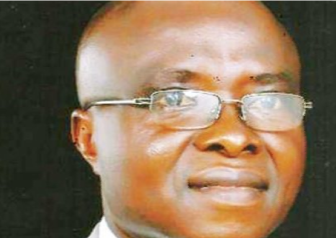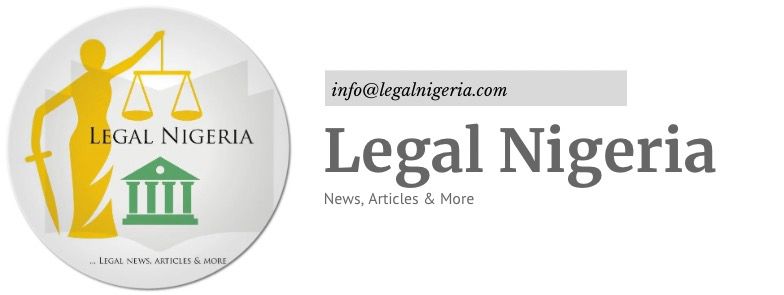By Ngozi Olehi


The 2023 general elections are fast approaching and another opportunity is offering itself to recover Nigeria from the rubbles of incompetence, backwardness, nepotism, grave insecurity and highhandedness in governance.
Nigerians have been consigned to retrogression by recycling deadwoods and this has deepened the abyss the people have been lowered into. After a protracted and tyrannical expedition of the Nigerian Army into governance, the world was expecting Nigeria, the most populated black nation in the world, to march to its deserved seat in the comity of nations. The journey to glory turned out to be a march to folly and the glimmering to grandeur dimmed to thick darkness. The outcome is hardship, suffering and poverty, which have become the defining physiognomies of the giant Nigeria would have become. It keeps worsening by the day.
The present journey began with the 1999 Constitution on May 29, 1999 with Olusegun Obasanjo as President. Nigeria wobbled through with what was regarded then as some bungles but can today be called days of glory. At the completion of his second tenure in 2007, Umaru Musa Yar’ Adua, who won the presidential election, was sworn in. Yar’ Ardua was humble enough to admit that the electoral process that brought him to power was flawed. In the second paragraph of his inaugural speech, he said: “We acknowledge that our elections have shortcomings. I also believe that our experiences represent an opportunity to learn from our mistakes. Accordingly, I will set up a panel to examine the entire electoral process with a view to ensuring that we raise the quality and standard of our general elections, and thereby deepen our democracy.”
This realisation is noteworthy and is a sharp contrast to worst claiming to be the best. His tenure was cut short by death but it is remarkable that he achieved the highest growth rate so far since 1999.
In his address commemorating Nigeria’s 61st Independence Anniversary, President Buhari defecated to the nation when he claimed to be the best of the presidents since the 1999. Of the four presidents who have led Nigeria since it returned to democracy in 1999, Buhari holds the worst record in terms of economic growth.
Olusegun Obasanjo’s regime from 1999 to 2007 had an average growth rate of 6.9 per cent. His immediate successor Umaru Musa Yar’ Adua did even better in his two years with an average growth rate of 7.6 per cent, while Goodluck Jonathan delivered five per cent growth rate in his six-year term as President that ended in 2015. Nigeria’s GDP per capita declined by 0.02 per cent, 4.16 per cent and 1.78 per cent in 2015, 2016 and 2017 respectively. In 2018, 2019 and 2020, it declined by 0.68 per cent, 0.38 per cent and 4.57 per cent. Six years of contracting per capita has inflicted grievous pain on businesses and households.
Then President Yar’ Adua was determined to make a mark. He established a presidential electoral reform committee to look into the legal factors, social and political institutions and security issues that affect the quality and credibility of elections in the country and also, to make recommendations on improving the credibility of elections.
The reform committee was headed by Muhammadu Uwais, a former Chief Justice of the Supreme Court of Nigeria. Among the recommendations of the committee was constitutional measures to make Independent National Electoral Commission truly independent, removing some of the activities of INEC with the creation of an electoral offenses commission and a parties registration agency. It also recommended speedy resolution of legal challenges of elections, presumably before the swearing in ceremony of the victor of the seat being challenged.
Sickness struck down Yar’ Adua and he could not implement the recommendations of the Uwais Electoral Reform Committee before unfortunately death snatched him away from Nigeria. It is not unlikely that his readiness to transform the electoral culture attracted the confidence of Nigerians and both local and international investors, which translated to increased growth percentage to 7.6 from the 6.9 per cent his predecessor achieved. The truth is that the electoral process is key to sustainable economic transformation.
The 2015 elections won by Buhari was marred by unparalleled malpractices. Millions of votes came from crises ridden States and he did not blink an eye. He won the 2019 elections by 3.9 million votes, having garnered 15.2 million to Atiku’s 11.3 million. The election turnout was 35.6 per cent, compared to 44 per cent in the 2015 presidential election. U.S. observers said the delay in holding the election damaged public trust in the process and probably reduced voter turnout, while the European Union said the vote was hit by “serious operational shortcomings.” These obvious flaws, through the ultimate beneficiary, have discoloured the nation and brought unspeakable socio-economic and political calamities in their wake.
In 2021, Nigeria was ranked third-worst governed nation in the world in the new global good governance index. The index used 34 indicators, which are organised into seven pillars: leadership and foresight; robust laws and policies; strong institutions; financial stewardship; attractive marketplace; global influence and reputation; and helping people rise. Mali, which is undergoing some political upheaval, is currently ranked as being better governed than Nigeria. Mauritius, at number 38 on the log, is Africa’s best performer. The report noted that countries that have done well under this pillar are all market economies with sound property rights and stable business regulations. It added that the ability to effectively tackle corruption is the indicator with the strongest correlation with overall good government rankings. The Good Governance Index said the ranking comes amid the COVID-19 pandemic, which has revealed strengths and weaknesses in institutions, laws, and leadership, adding that governance is the deciding factor in whether countries succeed. Buhari has no time for statistics and international best practices in governance. He compares himself to himself and sleeps soundly even when he has sunk the economy to abyss and the people are roasting in suffering and abject poverty.
Africa is picking up. The continent has six of the world’s 10 fastest growing economies in 2018, according to the World Bank. Nigeria was not among them and she was simply dismissed as “still experiencing negative per capita income growth, weak investment, and a decline in productivity growth.” Fortunately, Africa’s governments are beginning to develop the required infrastructure and institutions. Across the continent, efforts are underway to improve education and foster a culture of innovation. Moreover, political leaders are implementing reforms aimed at improving business conditions. In the World Bank’s 2019 Doing Business Index, five of the 10 most-improved countries are in Africa, and one-third of all recorded reforms occurred in Sub-Saharan Africa. Nigeria is nowhere to be found. The Government is doing practically nothing to speed up international trade and unlock investment and growth benefits. Its most important sinister agenda is achieving freedom of movement of cows.
Economic prospects of Africa, as have been predicted by international financial and development agencies, are expected to be high but Buhari does not care a hoot that Nigeria is nowhere to be found. As per the market reports, the continent is forecasted to witness a rise in GDP by 6%+ yearly between 2013 and 2023. The recent growth in the economic sphere of the continent can be credited to the increasing youth populace as well as enhanced sales in services, commodity and manufacturing.
Ghana was the world’s fastest growing economy in 2018 with her real GDP growth at market prices at 8.3 per cent. Cote d’ Ivoire with 7.2 per cent and Senegal with 6.9 per cent are two other countries from West Africa in the first 10 fastest growing economies in the world. Ghana’s economy represents a rising digital-based hybrid economy, driven by manufacturing and export of various digital tech goodies as well as assembly and export of ships and automobiles. Moreover, that country is also rich in industrial minerals and even exports massive quantity of hydrocarbons. Ghana’s real estate sector is booming. This is another major factor behind Ghana’s high growth in the economic sector. Extreme leadership deficit and therefore appalling governance have dispatched Nigeria to the waste bin of life as she lags behind in all development indices evidenced by her 2018 “accolade” as the world’s poverty capital. The country’s leaders are not bothered that they have dragged the nation to economic doom as tribal and religious considerations make them focus on “cow economy.”
The foregoing establishes a credible nexus between leadership, electoral integrity and sustainable development. Nigeria has been where it is because there have been no leaders. Harry S. Truman, a one-time President of America declared that “without leaders, society stands still. Progress occurs when courageous, skillful leaders seized the opportunity to change things for the better.” It has become imperative for all who love Nigeria to put all hands on deck to rescue the nations from the rubbles. Nigeria needs leaders that think about the future. The glory of the nation must be restored.
In 1980, a dollar was worth only 78 kobo as against more than N520 now. Nigerians rode in locally assembled cars, buses and trucks: Peugeot cars in Kaduna, Volkswagen in Lagos, Leyland in Ibadan and ANAMCO in Enugu. Steyr was producing Nigeria’s agricultural tractors at Bauchi. It is important to add, they were not barely assembled here, Nigeria was producing many of the components: Vono was producing the foam components, Exide in Ibadan was producing the batteries, even for the entire West African market, Isoglass and TSG in Ibadan were producing the windshields, Ferodo in Ibadan was producing the brake pads and discs, while tyres were produced by Dunlop in Lagos and Mitchelin in Port Harcourt. The tyres were produced from rubber plantations in Ogun and Cross River States. Even then, in 1980, Nigerians were listening to Radio and watching television sets assembled by Sanyo in Ibadan.
From cotton produced in Nigeria, Nigerians were putting on clothes weaved by UNTL Textile Mills in Kaduna and Chellarams in Lagos. Then, public water supply was running through pipes produced by Kwalipipe in Kano and Duraplast in Lagos, while toilets were fitted with WC produced in Kano and Abeokuta.
Nigerians were cooking with LPG gas stored in gas cylinders produced at NGC Factory in Ibadan, while electricity that powered the industries and homes of Nigerians was flowing through cables produced by the Nigerian Wire and Cable Co. Ibadan, NOCACO in Kaduna and Kablemetal in Lagos and Port Harcourt. Then too, leather tanned in Kaduna were used by Bata and Lennard to produce shoes worn by Nigerians. It is the choice of people through exercise of their franchise that can restore Nigeria’s lost glory.
The right to vote has long been regarded as the basic functional element of democratic system and development of a country, as well as one of the most important rights among the rights intrinsic to a democratic nation. The right of a citizen to participate in the process
of formation of a political will is manifested not only by participation in elections but also by effectiveness of procedural mechanisms that allow an individual to influence the outcome, including by exercising the fundamental right to seek judicial relief.
In a complex multicultural society as Nigeria, it is impossible for genuine democracy to thrive without a virile judiciary. As the people crave for a new Nigeria, different institutions have critical roles to play. One of the institutions is the Judiciary. The stability and quality of a democracy is often determined by the integrity and courage of the judiciary.
• Olehi is an Owerri based legal practitioner and Notary Public.








